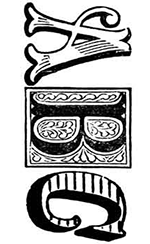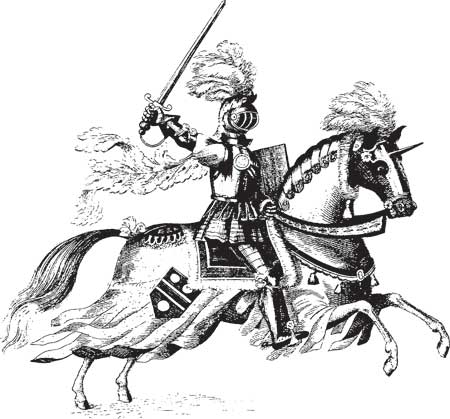ترجمه اصطلاحات تاریخ ادبیات
بهادرخانی به انگلیسی
Bahadorkkhaniنورشناسي به انگلیسی
extramissionدوره اسلامي به انگلیسی
Islamic eraرياضيات اقليدسی به انگلیسی
Euclidean mathematicsنجومی به انگلیسی
astronomicalمصادیق به انگلیسی
instancesشبه قاره به انگلیسی
Indiaفلسفي به انگلیسی
philosophicalفرضیه به انگلیسی
hypothesis
دوره اسلامي به انگلیسی
Islamic eraرياضيات اقليدسی به انگلیسی
Euclidean mathematicsنجومی به انگلیسی
astronomicalمصادیق به انگلیسی
instancesشبه قاره به انگلیسی
Indiaفلسفي به انگلیسی
philosophicalفرضیه به انگلیسی
hypothesis
نجومی به انگلیسی
astronomicalمصادیق به انگلیسی
instancesشبه قاره به انگلیسی
Indiaفلسفي به انگلیسی
philosophicalفرضیه به انگلیسی
hypothesis
شبه قاره به انگلیسی
Indiaفلسفي به انگلیسی
philosophicalفرضیه به انگلیسی
hypothesis
فرضیه به انگلیسی
hypothesis
 در این مقاله فصل دوم از کتاب جامع بهادرخانی با موضوع نورشناسی برای شرح و نقد برگزیده شده است. سوال مبنایی این مقاله بررسي ميزان اثرپذيري نورشناسي جامع بهادرخانی از مكاتب قديم و جديد است. فرضیه اصلی این است که جامع بهادرخاني با وجود تمام پیشرفتهای حاصل شده در نورشناسی جدید، همچنان بر اساس متون نورشناسي هندسي دوره يوناني و دوره اسلامي موجود در زمان خود به نورشناسي مينگرد و پافراتر از رياضيات اقليدسی نميگذارد. این در حالی است که بر اساس مصادیقی از روابط هندسی و آخرین اکتشافات نجومی که جونپوری در کتاب خود بدان اشاره میکند، احتمالا او از آخرين تحولات نورشناسي هندسي جديد زمان خود نیز مطلع بوده است. حال بر اساس این فرضیه اصلی، فرضیه دیگری نیز به ذهن خطور میکند و آن اینکه: نورشناسي به طور خاص و ریاضی به طور عام شامل حساب، هندسه، نجوم و نورشناسی، در قرن نوزده ميلادي شبه قاره بيشتر جنبه هندسي داشته و از عمق فلسفي بيبهره بوده است.
در این مقاله فصل دوم از کتاب جامع بهادرخانی با موضوع نورشناسی برای شرح و نقد برگزیده شده است. سوال مبنایی این مقاله بررسي ميزان اثرپذيري نورشناسي جامع بهادرخانی از مكاتب قديم و جديد است. فرضیه اصلی این است که جامع بهادرخاني با وجود تمام پیشرفتهای حاصل شده در نورشناسی جدید، همچنان بر اساس متون نورشناسي هندسي دوره يوناني و دوره اسلامي موجود در زمان خود به نورشناسي مينگرد و پافراتر از رياضيات اقليدسی نميگذارد. این در حالی است که بر اساس مصادیقی از روابط هندسی و آخرین اکتشافات نجومی که جونپوری در کتاب خود بدان اشاره میکند، احتمالا او از آخرين تحولات نورشناسي هندسي جديد زمان خود نیز مطلع بوده است. حال بر اساس این فرضیه اصلی، فرضیه دیگری نیز به ذهن خطور میکند و آن اینکه: نورشناسي به طور خاص و ریاضی به طور عام شامل حساب، هندسه، نجوم و نورشناسی، در قرن نوزده ميلادي شبه قاره بيشتر جنبه هندسي داشته و از عمق فلسفي بيبهره بوده است.
 The present article discusses and criticizes chapter two of Bahadorkkhani Comprehensive Book on extramission. The basic question of the study is the extent to which the new book of the author is under influence of his old book of comprehensive extramission. The main hypothesis is that despite all scientific advances in new extramission, Bahadorkhani’s Comprehensive Book still relies on extramission theory of ancient Greece and his Islamic era and does not step beyond Euclidean mathematics. It is notableو based on the instances of geometric relationships and the lasted astronomical discoveries brought in Jonpouri’s bookو that Bahadorkhani probably was aware of the latest advances in new geometric extramission. Following this hypothesis led us to another one that states, extramission specifically and mathematics that cover arithmetic, astronomy, and extramission had a strong geometric aspect in the India of 19th century without deep philosophical aspects.
The present article discusses and criticizes chapter two of Bahadorkkhani Comprehensive Book on extramission. The basic question of the study is the extent to which the new book of the author is under influence of his old book of comprehensive extramission. The main hypothesis is that despite all scientific advances in new extramission, Bahadorkhani’s Comprehensive Book still relies on extramission theory of ancient Greece and his Islamic era and does not step beyond Euclidean mathematics. It is notableو based on the instances of geometric relationships and the lasted astronomical discoveries brought in Jonpouri’s bookو that Bahadorkhani probably was aware of the latest advances in new geometric extramission. Following this hypothesis led us to another one that states, extramission specifically and mathematics that cover arithmetic, astronomy, and extramission had a strong geometric aspect in the India of 19th century without deep philosophical aspects.







 برای مطالعه بیشتر در مورد نگارش آکادمیک و نکات مهم به کانال تلگرامی ما مراجعه کنید.
برای مطالعه بیشتر در مورد نگارش آکادمیک و نکات مهم به کانال تلگرامی ما مراجعه کنید.








نظرات و سوالات:
نظرات و پرسشهای قبلی